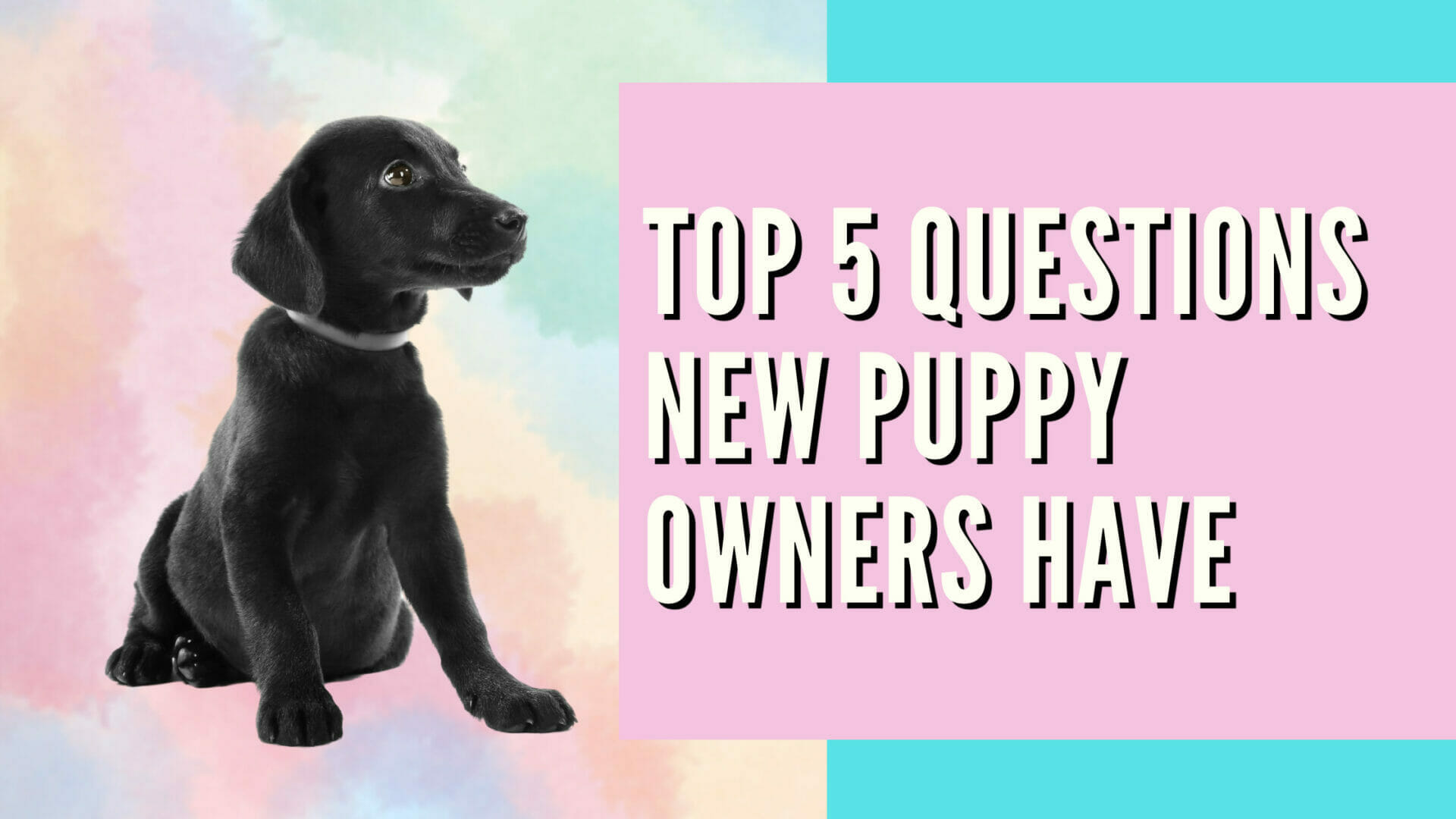You did all the research before bringing your new puppy home, and now the puppy is here, and you feel overwhelmed. You’re not the only one! Many first-time or even experienced owners can feel like caring for a new puppy is exhausting. Puppies are a lot of work, things are ever-changing, and you will have more questions as they grow! Let us help you address some of the most common questions we get as puppy professionals.
1. Why is my puppy biting everything?
Biting and chewing is normal behavior for puppies as part of their development. Aside from normal dog biting, puppies bite more often to get information, it feels good to do it, and their mouth is sore from the teething process.
How do I stop their biting and chewing? Utilizing safe puppy spaces, like a crate and x-pen, and supervising your puppy are the best methods to prevent unwanted chewing. When they go for an item they should not be chewing, redirect them to one of their toys instead. You can redirect with sound or take the item and swap it out. Be consistent with your approach so they realize that no matter what there are only a few select things they are allowed to chew on.
Make sure to have a variety of toy types to target the type of chewing they need at the moment. You can also freeze some toys to help with their toothaches.

2. How often should my puppy go outside?
Puppies need to go outside – All. The. Time!
After eating, after drinking, after sleeping, and during/after playing. As a rule of thumb, puppies can hold it as many hours as they are in months; this means your 2-month-old puppy may need to go out about every 2 hours and a 4-month-old puppy about every 4 hours while keeping in mind the above rule. The potty break frequency will vary depending on each puppy and their activity level. Try setting a schedule and monitoring your puppy’s tendencies to see what works best for them.
We suggest using a potty log to help you track their habits and successes. When your puppy potties in the appropriate space, then reward them for it! You can keep special potty-only treats that are high value to encourage fast potty habits outside. It helps to keep a small treat bin by the outside door so they’re easily accessible.
3. When should I start training?
Now!
Puppies are little sponges who soak up everything so we want to ensure they’re learning the right behaviors. Training your puppy as soon as you get them will ensure that they’re set up for success in the long term. The little things they do wrong may not seem like a big deal right now, but allowing puppies to do unwanted things today can result in undesirable tendencies as adults.
We suggest setting up an in-home private lesson for the same week your puppy comes home to set them up on the right paw. The trainer can go over in-depth, everything in this article, along with answering any specific questions about your puppy and fitting them into your lifestyle (within reason! Puppies do require some lifestyle adjustment – they’re like a baby!)

4. Does my puppy need to be fully vaccinated to start training?
Puppies can start training in our facility once they have two rounds of Distemper, Parvo, Bordetella, and a negative Fecal Float. We do not require Rabies until puppies turn six months old. Since all dogs coming into our facility are vaccinated and it’s a controlled environment, we do not require puppies to have their last shots before starting. Puppies need to start training and learning how to socialize between 8 to 16 weeks.
5. When can I take my puppy to the dog park?
To socialize your puppy we recommend signing up for the Puppy Kindergarten group class. We don’t suggest taking your puppy to a dog park. Dog parks are not monitored and dogs’ vaccines are not verified. They can be grounds for transferring diseases and bad habits. Dog parks are also filled with dogs of all ages, sizes, and temperaments and when not monitored by educated staff to ensure appropriate play and dog introductions, it can lead to various incidents which can affect your dog for the rest of their life.

Lots of times new year resolutions bring plans of dieting, but have you considered your dog’s diet? Often our dog’s eating habits aren’t a top priority, or many people just don’t know where to start. There are so many options and resources nowadays so we’ve compiled…
The new year is upon us which means everyone is setting their New Year’s resolutions. Here are some New Year’s resolutions you can do with your dog.
Traveling can be stressful but bringing along your dog doesn’t have to be. Try these tips to help ease the stress for you and your dog. If traveling by plane you’ll want to check with your airline to see what their requirements are. Don’t wait until it’s time…
‘ In this post I’m going to share with you why its beneficial to use a barrier (baby gate, play pen, etc) during the early stages of puppy obedience training, especially when you’re dealing with a puppy that gets over excited or too aroused as soon as you bring the…

Join our Dog Loving Notes!
Get training tips, workshops invites & hot offers from our dog lovers team!
You have Successfully Subscribed!




